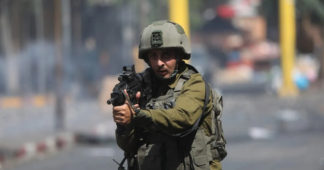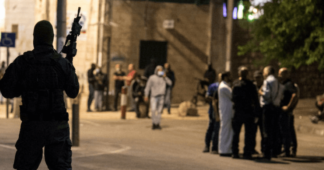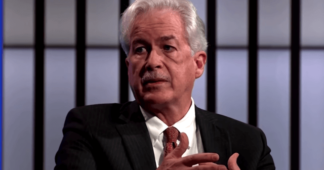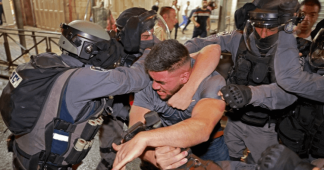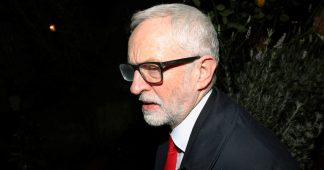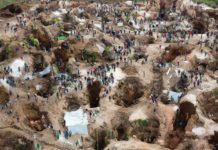Bill Burns says his meetings with leaders during last week’s trip to the region left him more concerned about prospect of increased violence
7 February 2023
The director of the United States Central Intelligence Agency expressed his concern last week that the current period of tensions between Israel and the Palestinians is beginning to resemble the violence of the Second Intifada.
“I was a senior US diplomat 20 years ago during the Second Intifada, and I’m concerned — as are my colleagues in the intelligence community — that a lot of what we’re seeing today has a very unhappy resemblance to some of those realities that we saw then too,” Bill Burns said during a live interview at the Georgetown School of Foreign Service in Washington on Thursday.
The Second Intifada lasted from 2000 to 2005 and for Israelis became synonymous with the suicide blasts and bus bombings that led to the deaths of over 1,000 civilians and soldiers. The uprising that followed the Camp David peace negotiations also saw intense clashes with Israelis troops that left over 3,000 Palestinians dead.
Burns made the remarks days after returning from the region, where he met with senior Israeli and Palestinian leaders, as the Biden administration has intensified its efforts to calm tensions between the sides.
But Burns said he did not leave the trip feeling optimistic. “The conversations I’ve had with Israeli and Palestinian leaders left me quite concerned about the prospects for even greater fragility and even greater violence between Israelis and Palestinians
“Part of the responsibility of my agency is to work as closely as we can with both the Palestinian security services and the Israeli security services to prevent the kind of explosions of violence that we’ve seen in recent weeks. That’s going to be a big challenge, and I’m concerned about that dimension of the landscape in the Middle East as well,” he added.
Ties between Jerusalem and Ramallah have been strained for months. The previous Israeli government took some steps to bolster the PA, but still refused to engage in diplomatic negotiations. Tensions have soared since the swearing-in of a new coalition in late December led by Prime Minister Benjamin Netanyahu. Widely seen as the most right-wing government in Israel’s history, it slapped a series of sanctions against the Palestinian Authority in early January in response to the latter’s successful initiative at the United Nations to have the International Court of Justice weigh in on Israel’s conduct in the territories.
Continue reading at www.timesofisrael.com
We remind our readers that publication of articles on our site does not mean that we agree with what is written. Our policy is to publish anything which we consider of interest, so as to assist our readers in forming their opinions. Sometimes we even publish articles with which we totally disagree, since we believe it is important for our readers to be informed on as wide a spectrum of views as possible.
